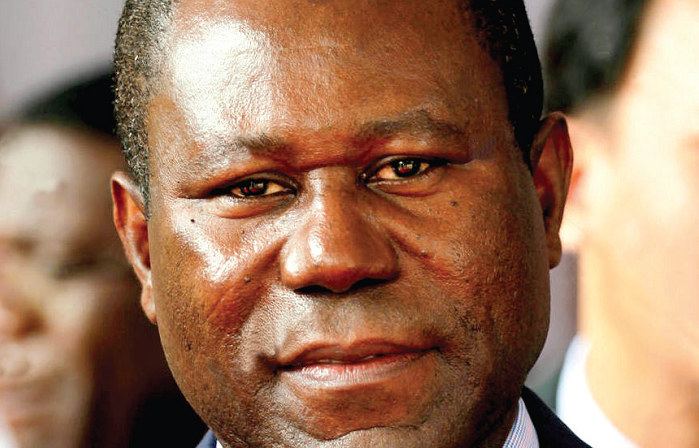
No more tax freebies for COCOBOD
When the 2018/2019 cocoa season begins, the Ghana Cocoa Board (COCOBOD) is likely to commence payment of stamp duties on its syndicated loans.
It will be in line with section 32 (6) of the Stamp Duty Act, 2005 (Act 689), which requires that loan documents should be stamped at 0.5 per cent of the loan amount, however, COCOCOBOD has, over the years, been exempted from paying this stamp duty in order to ensure that the trade finance facility was used solely for the purchase of cocoa beans and related expenses.
This position is likely to change as the Finance Committee of Parliament has recommended to Parliament that COCOBOD should be made to pay for the stamp duties. This position was also supported by a Deputy Minister of Finance, Mr Kwaku Kwarteng.
The committee, however, recommended to the house to approve the request of COCOBOD to grant it exemption for this year, hoping that it would be the last.
This was contained in the committee’s report on a request for the waiver of stamp duty amounting to US$ 6.5 million on the loan between COCOBOD and a syndicate of banks and financial institutions for an amount of US$ 1.3 billion for the purchase of cocoa for the 2017/2018 crop season.
The Chairman of the Finance Committee, Dr Assibey Yeboah told the GRPAHIC BUSINESS in an interview that there was no justification for COCOBOD to continue enjoying the tax exemption going forward.
“They are going for a loan of US$1.3 billion and the small money that will come to the central government too through the stamp duty too, they want exemption,” he noted.
“The tax exemption for this year, for instance, is just over US$ 6 million, which if it had been taken by government would not have seriously affected COCOBOD in anyway,” he added.
interview that there was no justification for COCOBOD to continue enjoying the tax exemption going forward.
“They are going for a loan of US$1.3 billion and the small money that will come to the central government too through the stamp duty too, they want exemption,” he noted.
“The tax exemption for this year, for instance, is just over US$ 6 million, which if it had been taken by government would not have seriously affected COCOBOD in anyway,” he added.
When the 2018/2019 cocoa season begins, the Ghana Cocoa Board (COCOBOD) is likely to commence payment of stamp duties on its syndicated loans.
One of the objects of COCOBOD is to purchase, market and export cocoa and cocoa products produced in the country. As a result of expected increases in the production of cocoa, there is the need to adequately resource COCOBOD to enable it finance and purchase cocoa beans.
It is to this end that the offshore syndicated loan was put in place in 1994 to enable COCOBOD secure loans to finance the purchase of cocoa beans and for other payments each year.
This year, Parliament approved that COCOCBOD secures a US$ 1.3 billion which is being provided by a syndicate of banks.
{loadmodule mod_banners,Nativead1}
Request for tax waiver
Under the terms of the agreement, the facility is to be waived of the payment of stamp duty and the total amount of waiver required amounted to US$ 6.5 million.
The management of COCOBOD explained that it was currently distressed financially due to payments of outstanding contracts and services and ,therefore, the payment of the stamp duty would further add financial challenges to the board.
This, they said, could adversely impact on the purpose for sourcing for the facility.
Utilisation of the loan
The Chief Executive Officer of COCOBOD, Mr Joseph Aidoo informed the committee that the funds would be used for the payment of produce from farmers, buyer’s margins, internal marketing operations, farmer’s services among others.
He said the projected cocoa purchases for the 2017/2018 crop season was 850,000 metric tonnes and if approval was given, the first expected drawdown would be in October, 2017 with the expected amount of US$ 700 million.
Reduction of loan amount
The committee observed that the trade finance loan for the 2017/2018 crop season was lower than the loan amount of US$ 1.8 billion which was sourced the previous year despite the increase in crop production.
Mr Aidoo explained that the main reason for the reduction was that world market prices had dropped from an average of US$3,000 to US$ 2,000 this year.
He said it was ,therefore, necessary to go for a smaller amount to guarantee repayment
Payments into stabilisation fund
In response to how much had been paid into the stabilisation fund of the board, the technical team responded that three payments had been made since November 2016.
They said a total amount of GH₵ 85.89 million was paid in November, 2016 in respect to the 2015/2016 crop season.
The second payment amounting to GH₵93.5 million was made in February, 2017 from cocoa proceeds and additional GH₵10 million paid in July, 2017, bringing the total amount in the stabilisation fund to GH₵310 million.